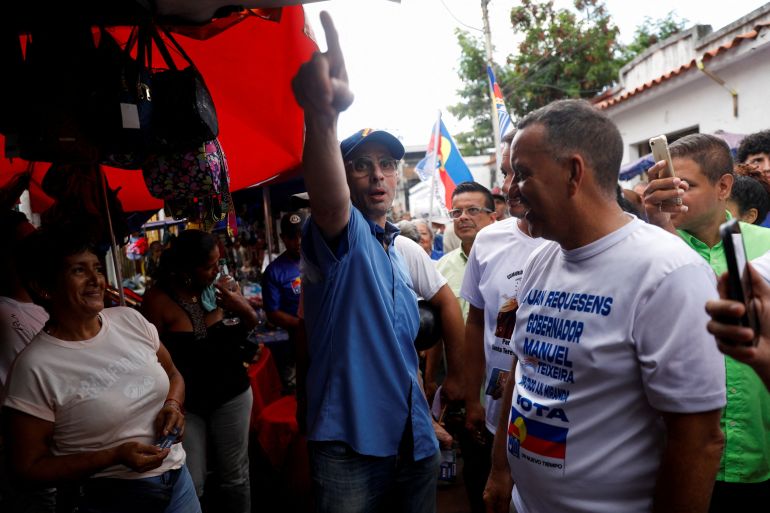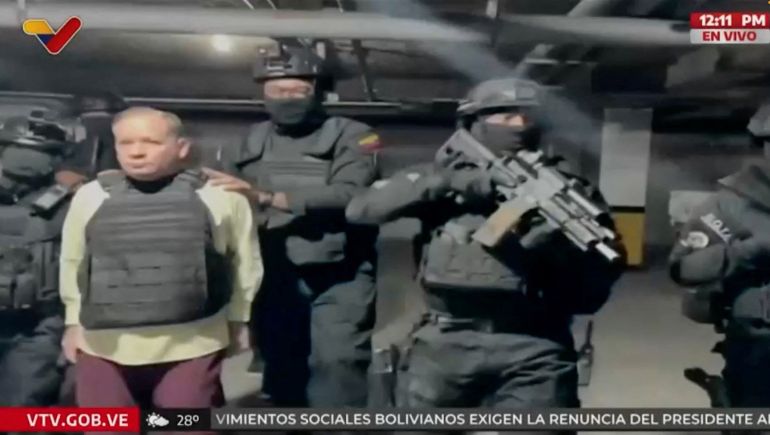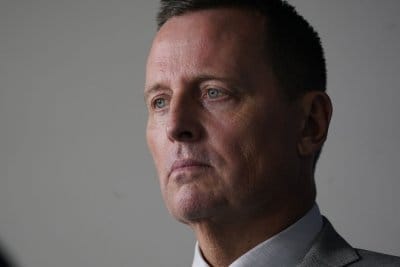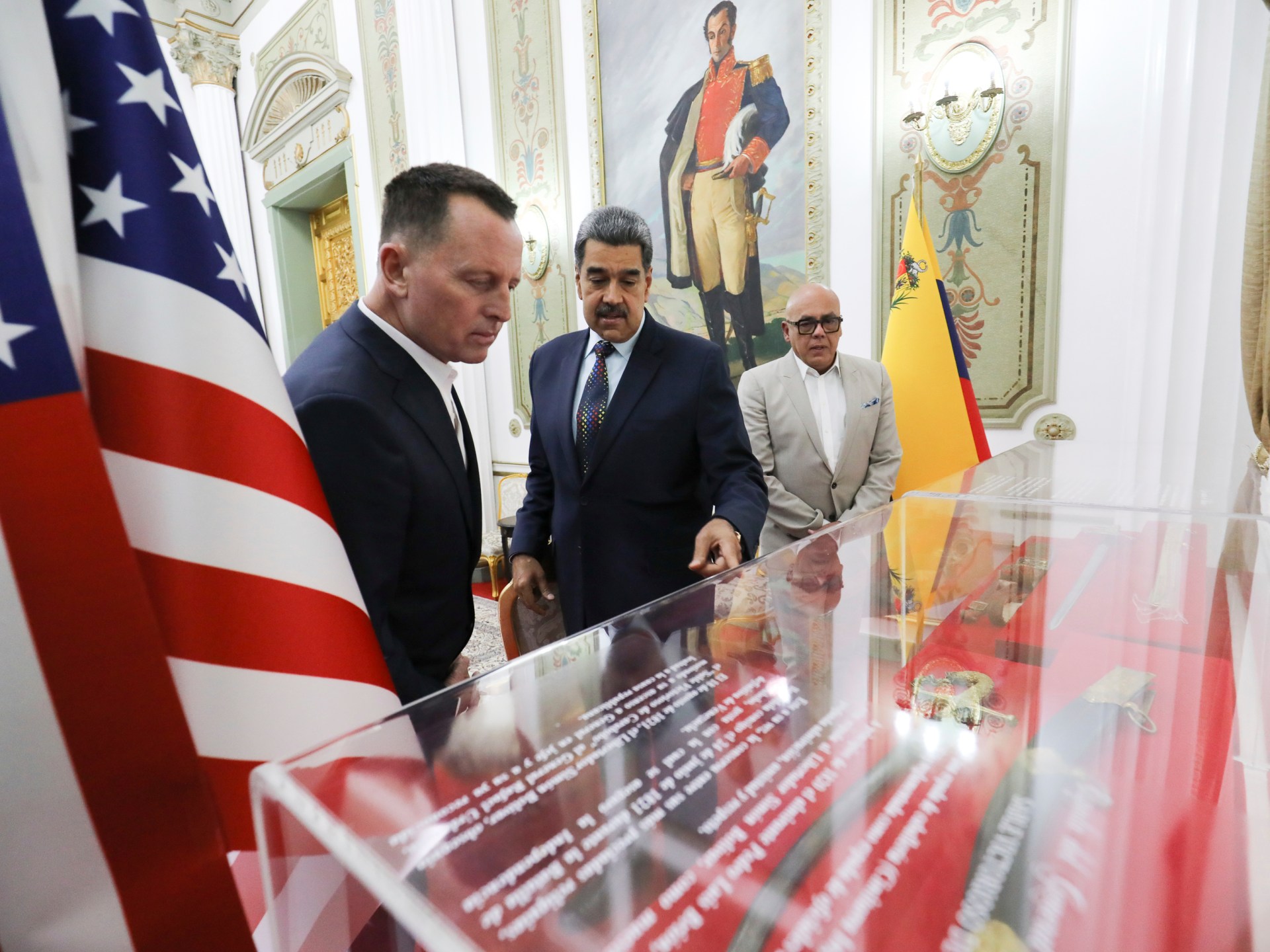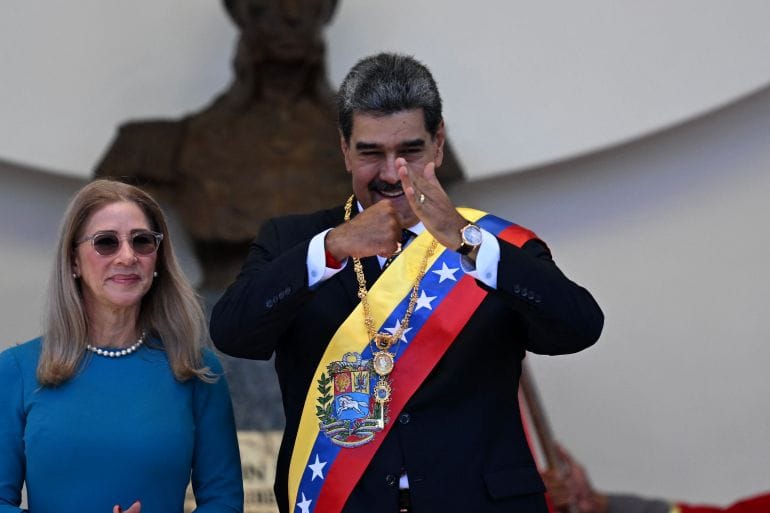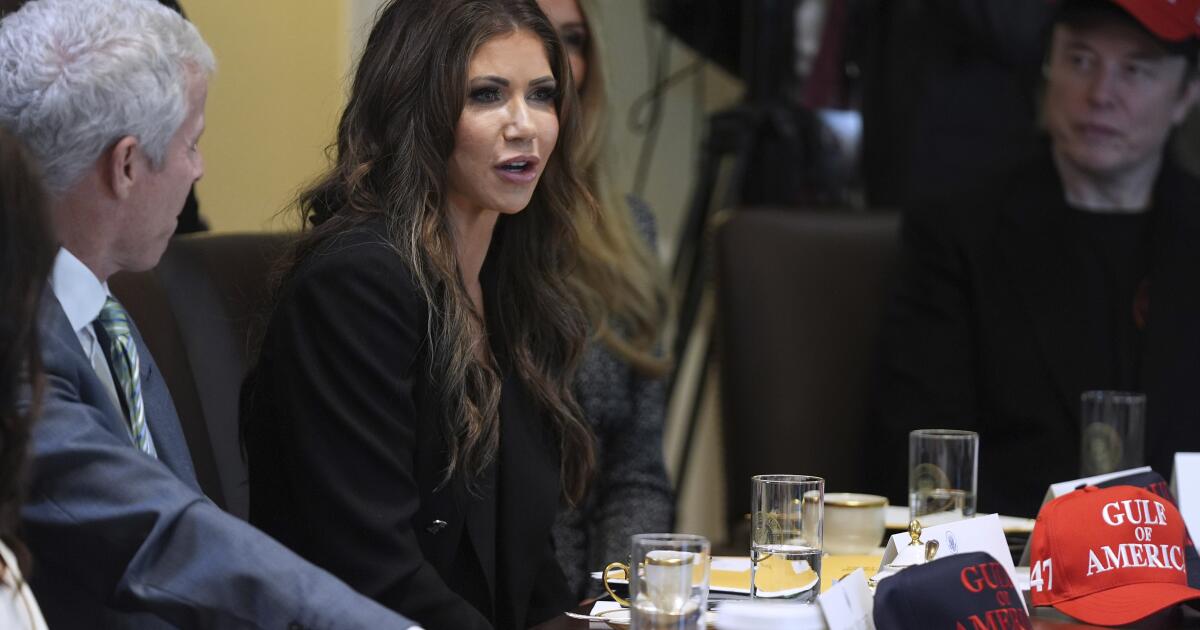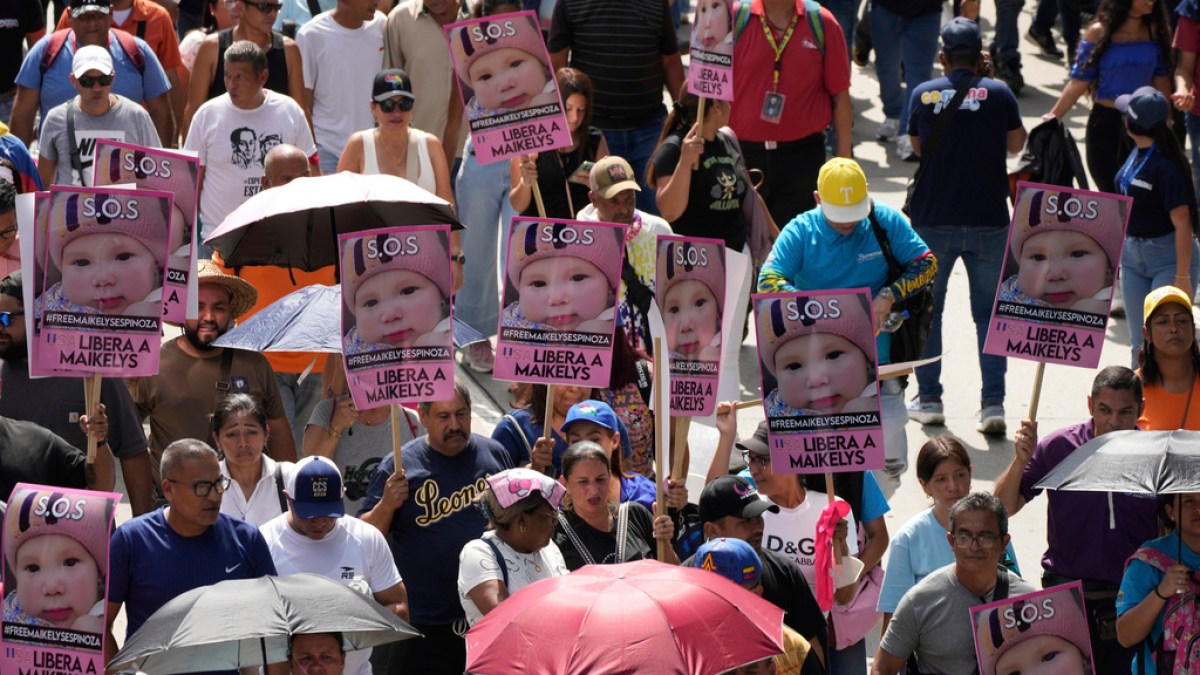Venezuelans vote amid boycott calls and fears of government repression | Elections News
Legislative, regional elections are the first to allow broad voter participation since last year’s disputed presidential vote.
Venezuelans are casting their ballots in legislative and regional elections under the shadow of a heightened government crackdown and opposition leaders calling for a boycott.
Sunday’s elections are the first to allow comprehensive voter participation since last year’s disputed presidential vote, which President Nicolas Maduro claimed to have won despite contradictory evidence.
It is also taking place two days after the government detained dozens of people, including a prominent opposition leader, and accused them of being linked to an alleged plot to hinder the vote.
In the first hours after the polls opened, members of the military reportedly outnumbered voters in some voting centres in the capital, Caracas. No lines formed outside the polling stations, including the country’s largest – a stark contrast with the hundreds of people gathered around the same time for the July 28 presidential election.
Many people appeared to have lost faith in the electoral process. “I am not going to vote after they stole the elections last year. For what? I don’t want to be disappointed again,” Caracas resident Paula Aranguren said.
In the eyes of the opposition, voter participation legitimises Maduro’s claim to power and what they brand as his government’s repressive apparatus.
After the presidential election, 25 people were reportedly killed and more than 2,000 people were detained – including protesters, poll workers, political activists and minors – to quash dissent. The government also issued arrest warrants against opposition leaders, levelling charges against them ranging from conspiracy to falsifying records.
Despite the risks, campaigning for some has remained a key form of resistance against the government.
“History is full of evidence that voting is an instrument towards democracy,” Henrique Capriles, a former opposition presidential candidate now running for a seat in the National Assembly, told Al Jazeera.
“I believe the way we stood for our rights last year kept alive the peaceful fight for our constitution because voting is what we have left to manifest our rejection of Maduro and his government,” Capriles said.

Meanwhile, the ruling party is touting an overwhelming victory across the country, just as it has done in previous regional elections.
A nationwide poll conducted from April 29 to May 4 by the Venezuela-based research firm Delphos showed only 15.9 percent of voters expressed a high probability of voting on Sunday.
Of those, 74.2 percent said they would vote for the candidates of the ruling United Socialist Party of Venezuela and its allies while 13.8 percent said they would vote for contenders associated with two opposition leaders who are not boycotting the elections.
Maduro accuses the opposition of attempts to destabilise the country.
“The death throes of fascism have tried to bring in mercenaries, and today, we have already captured more than 50 mercenaries who came in to plant bombs or launch violent attacks in the country,” he told supporters before election day.
Political analysts said the chances that free and fair elections would take place are practically nonexistent.
“There won’t be witnesses at the table, very few witnesses. Nobody wants to be a witness,” political analyst Benigno Alarcon told Al Jazeera, adding that low voter turnout, no understanding of who the candidates are and the lack of international observers are likely going to make the elections unfair.
Some voters who cast ballots on Sunday said they did so out of fear of losing their government jobs or food and other state-controlled benefits.
“Most of my friends aren’t going to vote, not even a blank vote,” state employee Miguel Otero, 69, told The Associated Press news agency. “But we must comply. We have to send the photo [showing] I’m here at the polling station now.”
